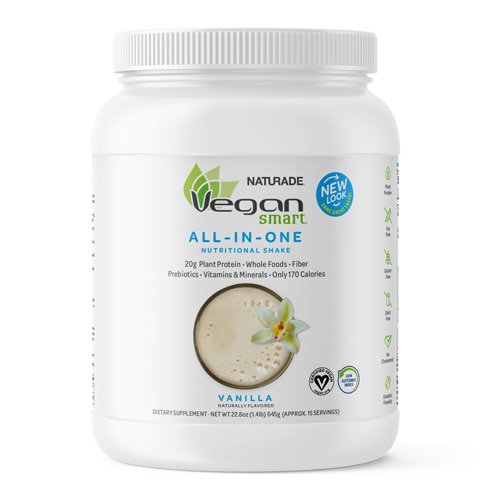You can’t fault vegetarians who’ve got a beef with beef.
Data from the U.S. Geological Survey indicates it takes 150 gallons of water to produce one quarter-pound hamburger. By comparison, 60 to 100 gallons of water go toward producing 1 pound of wheat, 20 gallons toward producing one egg and 10 gallons toward producing 1 pound of chicken, with 1 gallon going toward production of one orange.
To be sure, a vegetarian diet doesn’t win on every count in the water-to-produce-food battle, but it’s easy to see that beef is the big loser among the five examples cited above.
In light of that, how does vegetarianism — free of beef and other meats — benefit not just water conservation but the environment overall? Advocates stress that the vegetarian lifestyle aids the planet in myriad ways.
“Animal agriculture plays a role in almost all of the major environmental issues that plague our earth — climate change, habitat loss and destruction, wildlife extinction, overconsumption, soil degradation, water pollution and air pollution, just to name a few,” says John Oppermann, executive director of the Earth Day Initiative.
Oppermann says it’s more efficient for people to eat plants, rather than people eating meat from animals that consume plants. In other words, vegetarianism removes a few links from the food chain.
“An agricultural system focused on livestock production is arguably not sustainable,” he says, “and we live in a world where sustainability needs to be everyone’s priority.”
Here are four key environmental benefits of vegetarianism.
1. It reduces animal-waste runoff and groundwater pollution.
Large-scale animal farms create tons of waste that can leach into the soil and pollute groundwater sources, according to longtime conservationist Terra Wellington, author of “The Mom’s Guide to Growing Your Family Green: Saving the Earth Begins at Home.” Animal-waste pollution pumps harmful phosphorous, nitrogen and antibiotics into rivers, lakes and other bodies of water, she adds.
In the U.S., animals raised on large-scale farms generate more than 1 million tons of manure each day — three times the amount generated by the U.S. population, according to Farm Sanctuary, a nonprofit that promotes the ethical treatment of farm animals.
2. It cuts down on greenhouse gases.
If there’s less demand for animal protein, Wellington says, then there’s less demand for livestock.
Livestock contributes nearly 15 percent of the world’s human-caused greenhouse gases, thanks to the methane gas that the animals release. A United Nations report published in 2006 found that raising cattle generates more greenhouse gases — a significant factor in global warming — than driving cars does.
“Livestock are one of the most significant contributors to today’s most serious environmental problems,” Henning Steinfeld, a livestock expert at the UN’s Food and Agriculture Organization, said when the report came out.
3. It helps preserve precious land resources.
Raising animals for food — including acreage allocated for growing feed crops and grazing — gobbles up 30 percent of the Earth’s land mass, according to Mercy For Animals, a nonprofit that works to protect farm animals. Of all the agricultural land in the U.S., 80 percent is reserved for raising animals for food and growing grains to feed them, according to PETA, the animal rights group.
4. It decreases animal cruelty.
As PETA notes, large-scale “factory” farming aims to produce the most meat and other products “as quickly and cheaply as possible and in the smallest amount of space possible, resulting in abusive conditions for animals.” Cow, pigs, chickens, turkeys and other factory-farm animals typically are kept in small cages or stalls, often barely able to move, PETA says.
While pro-vegetarian organizations such as PETA tout the advantages of a meat-free existence, not everyone is entirely in vegetarianism’s corner. A Carnegie Mellon University study published in 2015 raised red flags about the pro-environment aspects of vegetarianism.
A news release about the study implied that following federal guidelines for eating more fruits, vegetables, dairy and seafood actually does more harm to the environment than adhering to a meat-based diet. Specifically, consuming the suggested “healthier” foods bumps up energy use, fresh-water use and greenhouse gas emissions, the news release suggested.
“Eating lettuce is over three times worse in greenhouse gas emissions than eating bacon,” study co-author Paul Fischbeck, a Carnegie Mellon professor, is quoted as saying in the news release. “Lots of common vegetables require more resources per calorie than you would think. Eggplant, celery and cucumbers look particularly bad when compared to pork or chicken.”
Responding to criticism about the study’s juxtaposition of a vegetarian-oriented diet and a meat-oriented diet on a per-calorie basis, Fischbeck and colleague Michelle Tom explained that they harbor no ill will toward veggies as a whole.
“You can’t lump all vegetables together and say they’re good,” Fischbeck told The Huffington Post. “You can’t lump all meat together and say it’s bad.”
The Huffington Post characterized the study as determining that “not every plant product is more environmentally friendly than every meat product.”
“So, yes, some vegetables can be worse for the environment than some meat,” The Huffington Post concluded, “but if you’re looking for an excuse to keep throwing back the burgers guilt-free, this [study] isn’t it.”




